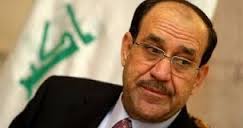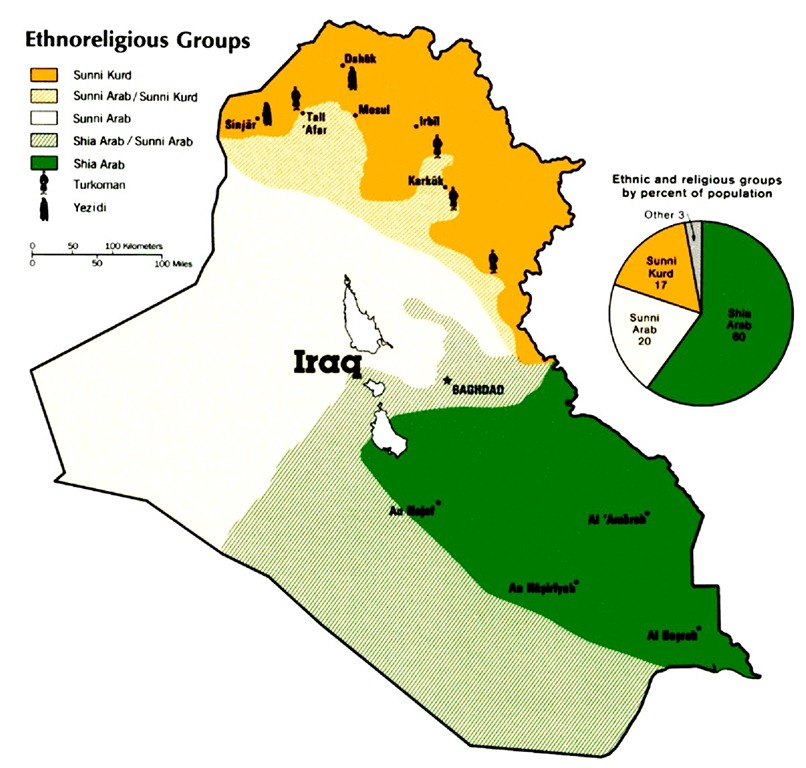 All hell was to break loose – or maybe not – in the restive Iraqi city of Falluja on Friday.
All hell was to break loose – or maybe not – in the restive Iraqi city of Falluja on Friday.
Valentine’s Day was the ”or else” deadline set by the Baghdad government for the jihadist militants in control of the western city to lay down their arms or face a ground assault by Iraqi forces, who have been massing around the provincial centre for weeks.
As it was before, Falluja is again at the heart of unrest in the new Iraq. But just because most other outbursts of violence in the country are reduced to ”in-brief”’ treatment in the Western media, it would be a mistake to presume all is well.
The latest count by the UN Assistance Mission for Iraq puts the country-wide death toll from attacks last year at 7818 civilians and 1050 of the security forces – a total of 8868, which makes it the bloodiest year in Iraq since 2008.
That 2008 marker is important. That was when the body count fell after George W. Bush ”surged” thousands more US troops into Iraq, which coincided with a decision by the Sunni tribes to fight with the Americans against al-Qaeda aligned militants.
What the new spike reveals is that Prime Minister Nouri al-Maliki cannot control the violence – from when he took office in 2006 through to 2008 he needed US firepower to turn things around, and in the absence of US forces, the insurgents are running amok.
In the same way Ariel Sharon in Israel and Vladimir Putin in Russia used Washington’s post-9/11 rhetoric to smash Palestinian and Chechen resistance respectively, Maliki casts the whole crisis that confronts him as the work of Islamist militants bent on trying to establish an ”evil statelet”.
During the US occupation of Iraq, the conflict was perhaps contained within the country’s borders. But this go-round, the fighting sits cheek-by-jowl with the conflict in neighbouring Syria and both wars unfold in a region dominated by the struggle for ascendancy between Shia-controlled Iran and Sunni-controlled Saudi Arabia.
 There is a spillover into Iraq from Syria, where the Sunni rebels have joined forces with their Iraqi counterparts in the border province of Anbar. But it is way too simplistic to bundle up the Iraqi unrest as the work of nasty al-Qaeda types – Maliki’s deliberate marginalising of the Sunnis is as much to blame.
There is a spillover into Iraq from Syria, where the Sunni rebels have joined forces with their Iraqi counterparts in the border province of Anbar. But it is way too simplistic to bundle up the Iraqi unrest as the work of nasty al-Qaeda types – Maliki’s deliberate marginalising of the Sunnis is as much to blame.
Further proof that Maliki is at heart like his predecessor, Saddam Hussein, can be found in last week’s Human Rights Watch report on the treatment of women.
Maliki is at heart like his predecessor, Saddam Hussein
Thousands of women are detained illegally, it says, and they are subjected to torture and threatened with sexual abuse. Often they are detained as punishment for the insurgency activity of male relatives – some have been raped, and in one case quoted in the report a woman confessed to unfounded terrorism allegations in the face of threats of being made to watch the rape of her daughter.
The persistence of the new Sunni pushback is sparking questions about Iraq’s viability as a nation. Its Kurdish population has already carved out its own autonomous statelet in the north – and the Sunnis want some of what they’re having.
“If Baghdad now loses control of the Sunni heartland, the US and other Western governments may need to accept that Iraq is increasingly a geopolitical fiction,” the Cato Institute’s Ted Galen Carpenter writes in The National Interest.
Urging stronger diplomatic outreach to the Kurds and efforts to establish more useful contact with the Sunnis, Carpenter argues: “That sort of advance planning is more fruitful than a knee-jerk reaction of providing US military hardware, intelligence and other assistance to help the Maliki government suppress the insurgents.”
Checking off the increased violence, what he rates as the Kurds’ ”increasingly blatant de facto independence”, and the renewed Anbar insurgency, Carpenter concludes: “No one should assume Iraq’s continuing survival as a country.”
That the insurgents can take control of whole cities, dispatch suicide bombers by the dozen, storm government buildings at will, and mount mass prison breaks as it suits them makes you wonder who runs Iraq these days.
I am reminded of an encounter some years back with Australian counterinsurgency expert David Kilcullen, in which I wondered about the level of violence necessary for militants to make a country ungovernable. Kilcullen’s sage advice was that in addressing the question of ungovernability, the level of violence was less important than the capacity of a government to deal with it.
On the UN’s new figures and the weight of the anecdotal evidence, it is now reasonable to ask if Maliki actually controls Iraq.
SMH

Leave a Reply
You must be logged in to post a comment.